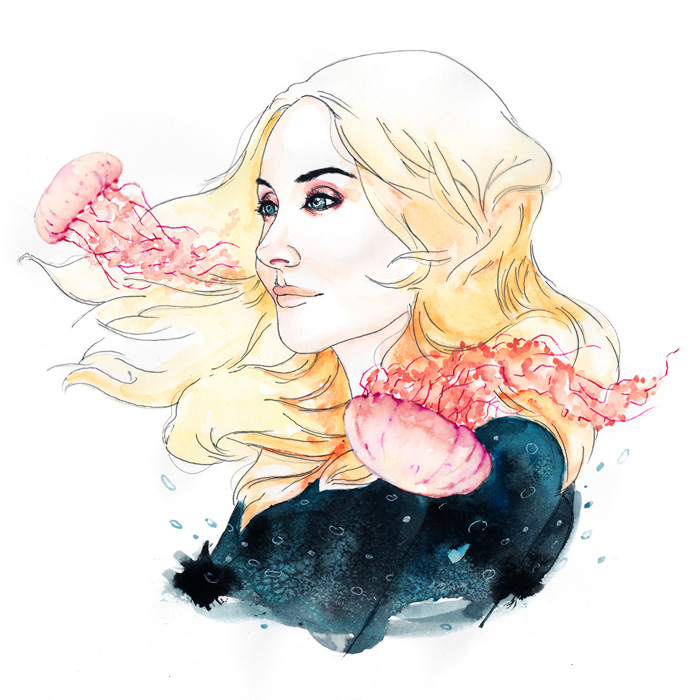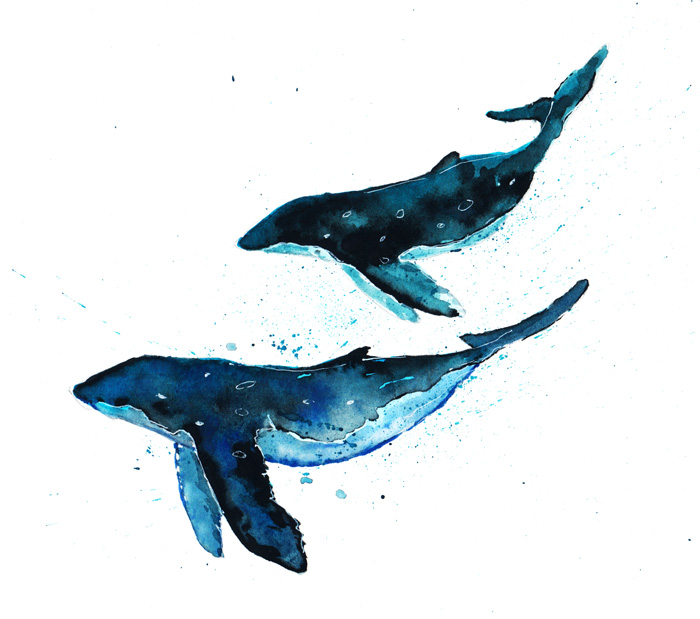
24 Mar 2017 30 Minutes with Alexandra Cousteau
On her first visit to the Philippines to advocate for sustainable fishing for OCEANA, the filmmaker and conservationist talked to GRID about being a child of the ocean and the passion that runs in her veins.
On Growing Up In The Ocean
I went on my first (sea) expedition when I was only 3 months old. (My daughter beat me by the way. She went on her first expedition when she was only 2 months old.) My grandfather taught me how to dive when I was seven, and I’d visit him in Monaco and we would visit the aquarium. We would play games where he was the steward king of this underwater universe and we would look at all our subjects and talk about how we had to take care of them. He was a magical person.
On Her Grandfather, Legendary Explorer and Filmmaker Jacques Cousteau
I was born in the late 70s and grew up in the 80s and back then, we were talking about Antarctica. I remember they wanted to go exploit Antarctica, and my grandfather was leading an initiative around the world and gathering petitions on paper (because this wasn’t the Internet age yet). He got millions of signatures on paper to try to help save Antarctica. Back then, they didn’t have the same issues that we have today: Climate change wasn’t really on the public agenda yet. That’s a real game changer as we know it. The oceans weren’t really collapsing yet. Having learned to dive more than 30 years ago, I’ve had the opportunity to see the changes, firsthand, in our oceans.
These are dramatic changes, not just little changes. I’ve seen places that I knew as a child disappear. For me, this is particularly heartbreaking because… as a child of the ocean, a child of the water, someone who learned to swim before they could even walk and someone who had the opportunity to really absorb it all, I realize that there was amazing abundance when my grandfather was my age. But when my 5-year-old daughter reaches my age, there could be very little left for her generation. Because the window of opportunity to make the kind of changes that could bring back a diverse and abundant ocean is closing.


On Taking Her Daughter Snorkeling For The First Time In The Philippines
Coming here to the Philippines is really quite special for me, especially because I’ll be going to Palawan where my grandfather made a film decades ago. So it will be interesting for me to see what it’s like and see the biodiversity I’ve heard about. And I will be able to take my daughter snorkeling for the first time in Palawan, which will be extremely special—both for her and for me as well. To be able to share a place like that with my child is extraordinarily meaningful because it is a part of her history and legacy with the oceans, and a love for the oceans, a contribution to the oceans, and I want her to experience it the way my grandfather experienced it, the way my father experienced it, and the way I experienced it as a child. Places like El Nido are like museums; they remind us what the oceans used to be like, but they now exist in just a handful of places. When we think about the ocean floor, we think it’s just dirt, right? Yet there is so much life there. It’s a living sea floor. So before we just… smash it up, we should really understand what we are sacrificing, as well as the opportunities for conservation. Because that’s what it is: an opportunity, not a sacrifice. That’s what brings me here. That’s why I have so much passion for this work and this place. Because what exists here is unique and this is the legacy of Filipinos. It is also the legacy of all the rest of us.
That’s why my daughter is snorkeling in the oceans for the first time here— and not in France or in the United States. There’s something extraordinary here [in the Philippines] that brings us here. And it is also part of her legacy as French girl that she can learn about and experience and remember forever, here in the Philippines.




On Traveling Around The World To Save The Oceans
I never felt pressured to do this; it’s more a way of life than a career choice. It was never really a career choice, it was never a strategy, there was no resume. I just grew up with all this and I love the lifestyle of traveling. My favorite moments are when I step off a plane in a country that I had never been to before and I can see the faces and I can hear the voices and smell the air and hear the sounds of this new place, and I know there’s an adventure that awaits. I don’t know what’s gonna happen—but I know it’s gonna be great. I love being in expeditions, being with my crew and telling stories together, and having a common purpose. These are all the things that matter to me to me in terms of what I do. I like working on things that I believe in.




On The Future Of Our Oceans
In the thousands of years we’ve inhabited this planet, we’ve only figured out what was below the surface of the oceans about 70 years ago. And we just explored less than 5% of our oceans. We are very young in our understanding of our oceans. I think, in spite of the fact that my grandfather did have such a big influence on making people aware of the oceans and exploring what was under the surface… I think today he would be more alarmed than when he was taking the Bill of Rights for Future Generations in the 1990s. He would be terribly alarmed. Because we have not managed to stop the momentum of loss, in spite of all efforts. But today, we have things that we didn’t have before. As the risks grow and the threats grow, we also have new tools to try to affect change at the level that we need to affect it—if we want to protect the places that we love and the way of life that we aspireto have. We cannot continue the way we are now if we expect our children to have any kind of quality of life. Oceana has been working with this idea that we can save the oceans all over the world, that if we are able to stop by-catch overfishing and expand marine protected areas in 2 dozen countries around the world that control almost 90% of fishing in the world, that’s something we can do, right? It’s not 120 countries. If we hit 30, then we can really do that, and the Philippines is one of those countries that could really change the abundance of our oceans. I think it’s important to tell people that the oceans start in our own backyards, they start at our dinner table, they start in our supermarkets, they start in the gutters—that’s where the oceans begin.

